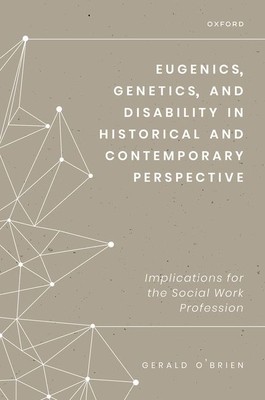
- We will send in 10–14 business days.
- Author: Gerald O'Brien
- Publisher: Oxford University Press, USA
- ISBN-10: 0197611230
- ISBN-13: 9780197611234
- Format: 16.2 x 24.3 x 1.7 cm, hardcover
- Language: English
- SAVE -10% with code: EXTRA
Eugenics, Genetics, and Disability in Historical and Contemporary Perspective (e-book) (used book) | bookbook.eu
Reviews
Description
Eugenics, Genetics, and Disability in Historical and Contemporary Perspective focuses on the conceptual relationship between the American eugenic movement of the early 1900s and contemporary genetic research, policy and practices, and their relevance for social work and related professions. While the expansion of pre-natal testing and other genetic innovations are often couched as a form of "new eugenics," this description is only partially correct. This book provides the first in-depth exploration of the relationship between the emerging social work profession and the eugenic movement during the first quarter of the twentieth century and considers the historical importance of this for the profession today. Social workers played a particularly important role in the movement of eugenic policies from targeting persons with disabilities to limiting procreation among "welfare" recipients, especially minority women. As the profession attempts to come to terms with this problematic history, it also needs to understand the dual "faces" it displays to persons with disabilities. Often purported as supporters of such persons, social workers' continued embracement of the medical model of disabilities keeps them from being accepted by many as true allies in the fight for social justice related to disability inclusion.EXTRA 10 % discount with code: EXTRA
The promotion ends in 11d.10:05:30
The discount code is valid when purchasing from 10 €. Discounts do not stack.
- Author: Gerald O'Brien
- Publisher: Oxford University Press, USA
- ISBN-10: 0197611230
- ISBN-13: 9780197611234
- Format: 16.2 x 24.3 x 1.7 cm, hardcover
- Language: English English


Reviews